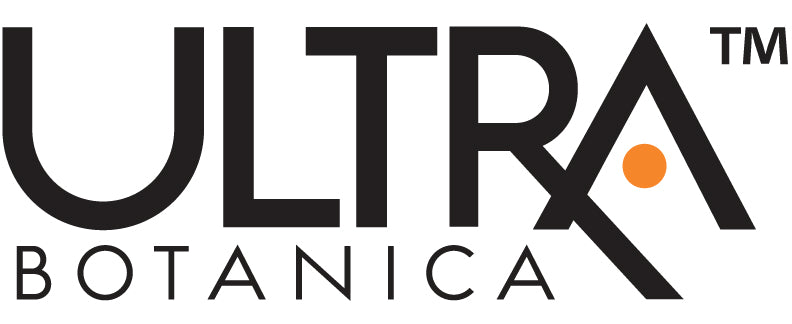We live in an era where extending our lifespan is a growing and exciting field of scientific exploration. Natural compounds like curcumin are gaining attention for their potential curcumin longevity benefits.
Research suggests curcumin plays a role in supporting overall health as we age. How does curcumin work to promote longevity?
Let’s dive into the research on curcumin longevity benefits and explore how this powerful compound may support a longer, healthier life!
What is Curcumin?
Curcumin is a natural polyphenol…
A polyphenol is a type of naturally occurring compound found in plants, with strong
antioxidant properties. These bioactive compounds help protect plants against UV radiation, pathogens, and environmental stress.
Polyphenols offer numerous health benefits, including combating oxidative stress and supporting overall health.
Curcumin, a bioactive compound found in turmeric, has a rich history of use in Ayurvedic and traditional Chinese medicine, offering therapeutic properties and a vibrant golden color.
Curcumin, along with other curcuminoids, makes up just 2% to 9% of turmeric. While this percentage seems small, emerging evidence suggests potent bioactivity and significant beneficial effects, generating robust interest for curcumin longevity benefits.
Curcumin Longevity Benefits and the Aging Process
Aging is a complex biological process influenced by genes, diet, and environmental factors.
While genetics set the foundation for how we age, lifestyle choices such as nutrition, exercise, and stress management play a significant role in determining our overall health and longevity.

Inflammaging
Key elements in aging research include chronic inflammation (which has been dubbed “inflammaging”) as well as oxidative stress. Inflammaging is thought to accelerate age-related diseases and age-related decline.
Curcumin longevity benefits combat this tendency. Its ability to inhibit signaling pathways such as NF-kB, COX-2, and cytokines such as IL-6 and TNF-alpha, make it a hot topic of research in longevity.
Oxidative Stress and Cellular Damage
As we get older, our bodies aren’t quite as good at bouncing back as they used to be. One of the main reasons for this is something called oxidative stress. This is where unstable molecules, called free radicals, start to build up in the body.
Think of it like this, you cut an apple and leave it out in the air. It starts to turn brown, right? That’s like what oxidative stress does to our cells.
Free radicals cause damage over time. This damage is linked to many age-related issues. Now, where do curcumin longevity benefits come in?
Curcumin, a compound found in turmeric, acts like a powerful antioxidant. It helps to neutralize those pesky free radicals. It’s like giving your cells a shield against damage, which can play a big role in healthy chronological aging and longevity.
Studies have shown that curcumin can help protect our cells and DNA from oxidative damage. This is important because damage to our DNA can speed up the aging process and increase the risk of some diseases.
But oxidative stress isn’t the only thing that affects how we age. Another key factor is something called cellular senescence. This is when our cells stop dividing but don’t die off. They just hang around, not doing their job properly and using up valuable space.
These “zombie cells” can cause inflammation and contribute to age-related decline.
Research suggests that curcumin might be able to influence these senescent cells. It could even help clear them out, making room for healthy, functioning cells.
This promising area of research adds to the growing evidence of curcumin longevity benefits.

Epigenetic Modulation
We all want to live longer, healthier lives. But how do we do it? Scientists are studying how our genes affect aging, a field called epigenetics.
Think of your genes as the computer hardware. Epigenetics is like the software that tells the hardware what to do. It influences which genes get turned on or off.
Curcumin has shown promising results for epigenetics. It may support healthy chronological aging by influencing epigenetic changes. Mind you, it doesn’t change your actual genes. But it can affect how your body reads them.
This is important for longevity because as we age, epigenetic changes can make us more likely to develop (or resist) certain diseases. Curcumin longevity benefits seem to affect several epigenetic processes.
One way is by changing how DNA is packaged. DNA is wrapped around proteins called histones. Changes to histones can affect gene expression. Curcumin can change these histones, influencing which genes get turned on or off.
Another way curcumin supports longevity is by influencing DNA methylation patterns. Methylation is a process where a methyl group is added to DNA, which can turn genes on or off.
Also, curcumin can influence non-coding RNAs (ncRNA). These are little pieces of RNA that don’t make proteins. But they still play an important role in how our genes are expressed.
By influencing non-coding RNAs, curcumin longevity benefits can have broad effects on how our cells function.
Curcumin supplementation has also been studied for its effects on enhancing the activity of sirtuins and improving metabolic disorders.
Although more research is needed, curcumin shows real promise for longevity, helping us live longer, healthier lives through its epigenetic effects.
It may be a useful tool in promoting healthy aging. This makes curcumin a very exciting area of research in the longevity field.
Mitochondrial Health
Mitochondria are like tiny power plants inside your cells. They create energy, essential for everything you do, from thinking to moving. But as we age, these power plants can start to sputter and slow how we feel and how our bodies work.
Curcumin offers some interesting benefits for these tiny power generators. Studies show that curcumin can help protect the mitochondria. It’s like giving your cellular power plants a tune-up to help them work more efficiently.
And when your mitochondrial function is optimal, you’re more likely to feel energized and healthy. Curcumin’s antioxidant properties are key to this process.
Antioxidants help protect cells from damage caused by unstable molecules called free radicals. Free radicals are a natural byproduct of our body’s processes.
But too many free radicals can lead to oxidative stress, which damages cells, including the mitochondria. Curcumin helps neutralize these free radicals, protecting your cells and supporting healthy aging.
Think of it like rust on a car. Free radicals are like tiny rust spots forming on your cells. Over time, they can cause big problems. Curcumin acts kind of like a rust remover.
It helps clean up those spots, keep things running smoothly, and provide curcumin longevity benefits. These benefits include increased energy levels and boosted cognitive function.
Curcumin also aids mitochondrial biogenesis — the process of creating new mitochondria. As we age, our bodies produce fewer new mitochondria.
Curcumin can help jumpstart this process and help maintain a healthy population of mitochondria in your cells.

Telomere Protection
Scientists are excited about telomeres! These protective caps at the ends of our chromosomes are like the plastic tips on shoelaces. They keep our DNA from fraying.
But they get shorter as we age. Shorter telomeres are a classic sign of aging.
Think of it this way. Every time a cell divides, its telomeres get a little shorter. Eventually, they become so short the cell can no longer divide.
This process contributes to aging because older cells can’t replace themselves efficiently and makes us more vulnerable to age-related diseases.
So, how does curcumin fit into this? Studies suggest curcumin may have telomere-protective properties, slowing down how quickly telomeres shorten. Although more research is needed, some clinical studies show promising results.
One study found that curcumin could increase telomere length in some cells. Another study showed it might protect telomeres from oxidative stress, which can accelerate telomere shortening.
Although these early findings are exciting, more research on the potential benefits of this ancient spice is needed to fully understand how curcumin interacts with telomeres.
Curcumin and Healthspan as You Age
Let’s take a look at how these cellular impacts translate to overall health, healthspan, and lifespan.
Cardiovascular Health
Heart health is a big deal, especially as we get older. This is where curcumin can become your new best friend. Curcumin has some pretty amazing potential benefits for your heart and blood vessels.
Curcumin appears to improve the function of the endothelium. The endothelium is the lining of your blood vessels, key for healthy blood flow. Think of your blood vessels as highways, and the endothelium is like smooth pavement.
Curcumin helps keep those roads clear for your blood to travel efficiently and support healthy blood pressure.
But that’s not all. Curcumin may also help manage cholesterol levels at some level. Researchers believe cholesterol levels can significantly impact your lifespan.
Another key benefit is curcumin’s powerful antioxidant properties, which help protect cells from damage caused by those unstable free radical molecules.
These molecules contribute to oxidative stress, a major factor in aging and various health issues. By neutralizing free radicals, curcumin supports heart health and promotes overall well-being.
So, while curcumin isn’t a magic bullet, it offers impressive support for cardiovascular health. Combined with a healthy diet and regular exercise, it can be a valuable tool for promoting longevity.

Cognitive Function and Brain Health
Research suggests curcumin may support cognitive function and play a role in neurodegenerative disorders. Its ability to clear amyloid-beta plaques could help maintain memory and overall brain health.
While more studies are needed to fully understand curcumin’s impact on cognitive longevity, other factors, such as chronic stress, also influence brain function.
Animal studies show that curcumin promotes the growth of new neurons in the hippocampus—the brain’s center for learning, long-term memory, and spatial awareness.
Metabolic Health
Preclinical research suggests curcumin offers metabolic benefits, including improved insulin sensitivity and improved stable blood sugar levels. By enhancing glucose uptake in cells, curcumin may help regulate energy metabolism.
Additionally, it has been shown to support lipid metabolism, potentially aiding in balanced cholesterol levels.
Its antioxidant properties may also protect against oxidative stress, a key factor in metabolic disorders. While further studies are needed, curcumin’s influence on metabolic health appears promising.
Immune System Health
As we get older, our immune systems don’t work as efficiently as they used to. Fortunately, curcumin can give your immune system a helpful boost. This is especially important for folks 40 and up who are looking for ways to stay healthy.
Curcumin is kind of like a personal trainer for your immune cells, keeping them strong and active so they can fight off those nasty pathogens. This is all part of promoting longevity and healthy aging.
It helps you stay active and enjoy life, because a strong immune system is essential for maintaining good health as you age. Curcumin can be a great way to give your immune system added support, especially as you get older.
Some clinical trials suggest that curcumin can affect certain immune cells directly. It may enhance their function and improve their ability to fight off infections.

What the Animal and Human Studies Say
Scientists have long studied curcumin to understand its potential for promoting longevity and overall health.
Research using animals, such as fruit flies and mice, has shown promising results. In fruit flies, curcumin increased the average life span by 26%. Studies on mice suggest that those given curcumin not only lived longer but also appeared healthier.
However, translating these findings to humans is challenging. Human studies on curcumin and longevity are complicated by factors like diet and lifestyle, making it difficult to isolate curcumin’s specific effects.
Despite these challenges, some research suggests curcumin may contribute to a longer, healthier life. One way curcumin may support longevity is by protecting cells from age-related damage.
By reducing oxidative stress and supporting healthy inflammation responses, it could help slow cellular decline, promoting overall well-being and healthy aging.
While more research and clinical trials are needed to confirm its direct impact on human lifespan, the current evidence is encouraging.
Curcumin Bioavailability: The Challenge and the Solutions
Curcumin, a natural compound found in turmeric, has shown promise in promoting longevity and overall health. But there’s a catch. It’s not easily absorbed by the body, meaning it has low bioavailability.
So even if you take a large dose, your body might not claim its full benefits. Several strategies can enhance curcumin absorption. Healthy fatty foods can enhance the bioavailability of curcumin and other natural bioactive compounds.
Some supplements use methods such as piperine (black pepper extract) to improve bioavailability but that can lead to digestive upset and increased uptake of prescription medications.
UltraBotanica’s UltraCur™ employs Protisorb™ protein absorption technology, substantially increasing curcumin absorption with no GI upset. Its enhanced bioavailability can increase its effectiveness.

Safety and Potential Side Effects
Studies on curcumin generally report no serious side effects, even at moderately high daily intakes. Some people may experience mild upset stomach or headache, although we haven’t found that to be true for UltraCur™ curcumin.
Discuss your use of UltraCur™ curcumin with your doctor, especially if you’re on blood thinners, have underlying conditions, or take other medications. UltraCur™ curcumin does have a blood thinning effect, so speak with your doctor if you take blood thinners.
Practical Applications for Longevity: Incorporating Curcumin into Your Life
Adding curcumin to your diet can be simple. Include it in your meals, add it to curries, stews, or smoothies. Drink turmeric teas. Try Golden Milk, a warm beverage with turmeric, other spices, and nut milk.
Supplements offer a higher, more concentrated and consistent dose. Choose high-quality products with increased bioavailability from reputable brands like UltraBotanica’s UltraCur™, and avoid those with artificial additives.
Healthy aging is a holistic endeavor. Curcumin’s longevity benefits work best alongside healthy lifestyle choices, including physical exercise, adequate sleep, and a Mediterranean diet. Don’t expect supplements to do the job by themselves.
Embrace balanced eating and regular exercise. Walking daily improves physical function, which is important for overall health.
Prioritize restorative sleep. Establish sleep rituals such as dimming lights around 7 PM and turn off devices 1-2 hours before sleep.
Conclusion
Curcumin shows great promise for promoting longevity. Its powerful antioxidant properties help combat oxidative stress and support healthy inflammatory responses, two key factors in the aging process.
While curcumin is not a quick fix for age-related issues, it is a valuable addition to a healthy lifestyle, and is an exciting area of study for healthy aging and long-term well-being.
Further research and clinical trials will help clarify curcumin longevity benefits, including its impact to delay aging, support stem cells, and modulating key signaling pathways.

Frequently Asked Questions
How does curcumin support mitochondrial health?
Curcumin supports mitochondrial health by protecting the mitochondria through its strong antioxidant properties. It helps neutralize free radicals that cause oxidative stress, a key factor in mitochondrial health.
Additionally, curcumin promotes mitochondrial function by enhancing mitochondrial biogenesis, the process of creating new mitochondria. By maintaining efficient energy production, curcumin may help improve overall vitality and cognitive function.
How to incorporate curcumin into my daily life?
Incorporating curcumin into your daily life can be simple and beneficial. You can add turmeric to meals like curries, stews, and smoothies or drink turmeric tea and Golden Milk.
For a more concentrated dose with better absorption, consider supplementation with UltraBotanica’s UltraCur™, which uses Protisorb™ technology for enhanced bioavailability without digestive discomfort.
For optimal results, pair curcumin with a healthy lifestyle that includes regular exercise, a balanced diet, and quality sleep to support longevity and overall well-being.
What are the curcumin longevity benefits and how do they support healthy aging?
Curcumin, the active compound in turmeric, supports longevity by reducing oxidative stress, supporting inflammation responses, and cellular damage—key drivers of aging.
It promotes mitochondrial function, clears senescent cells, and may help protect telomeres, slowing cellular aging. Curcumin also supports heart, brain, and metabolic health by improving blood flow, reducing amyloid plaques, and enhancing insulin sensitivity.
While not a cure for aging, curcumin longevity benefits effect key biological processes making it a promising tool for healthy aging.





Share:
Enhance Winter Joint Health: Strategies for Joint Comfort
Quercetin for Allergies: Relief from Seasonal Sniffles